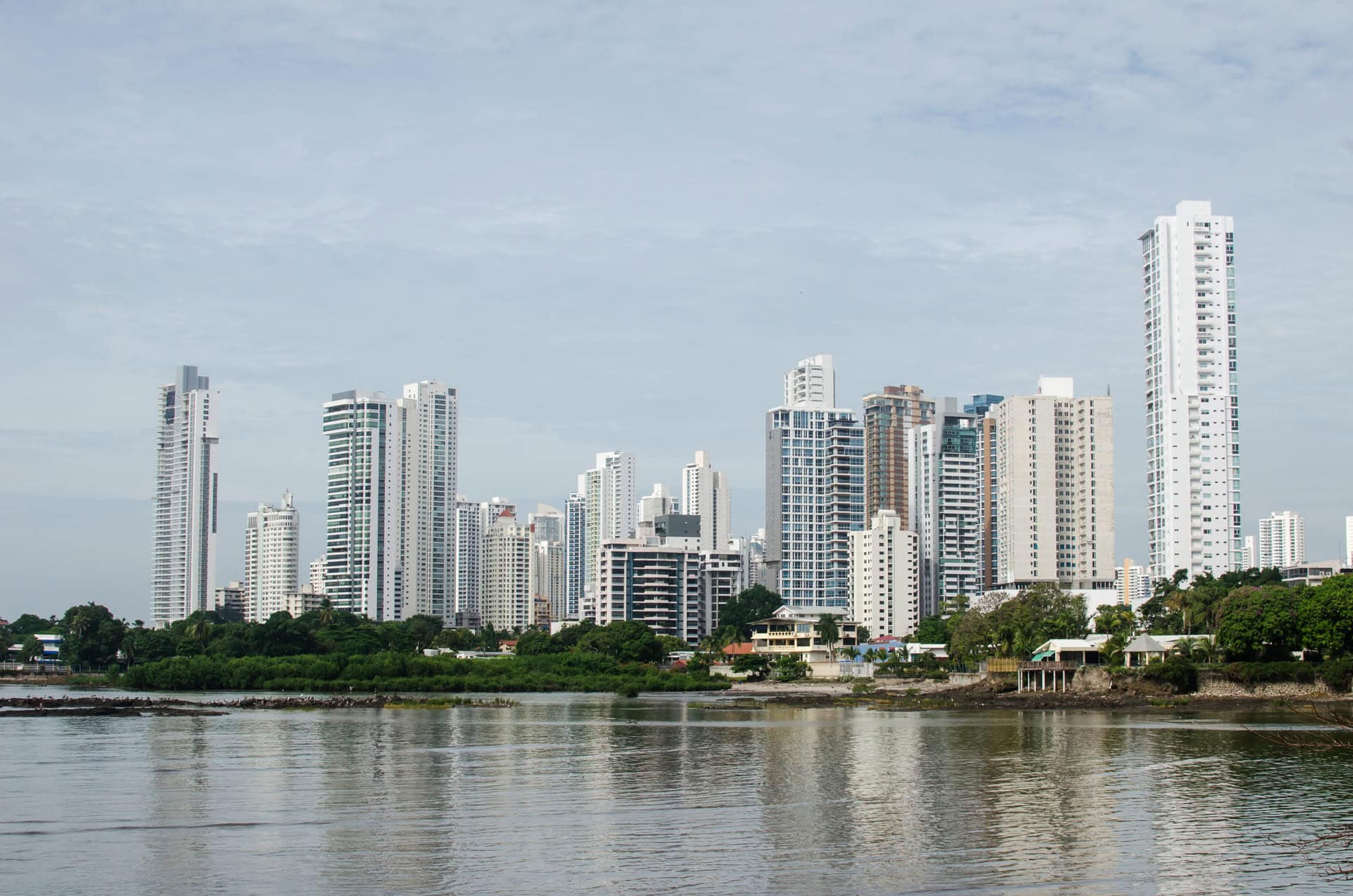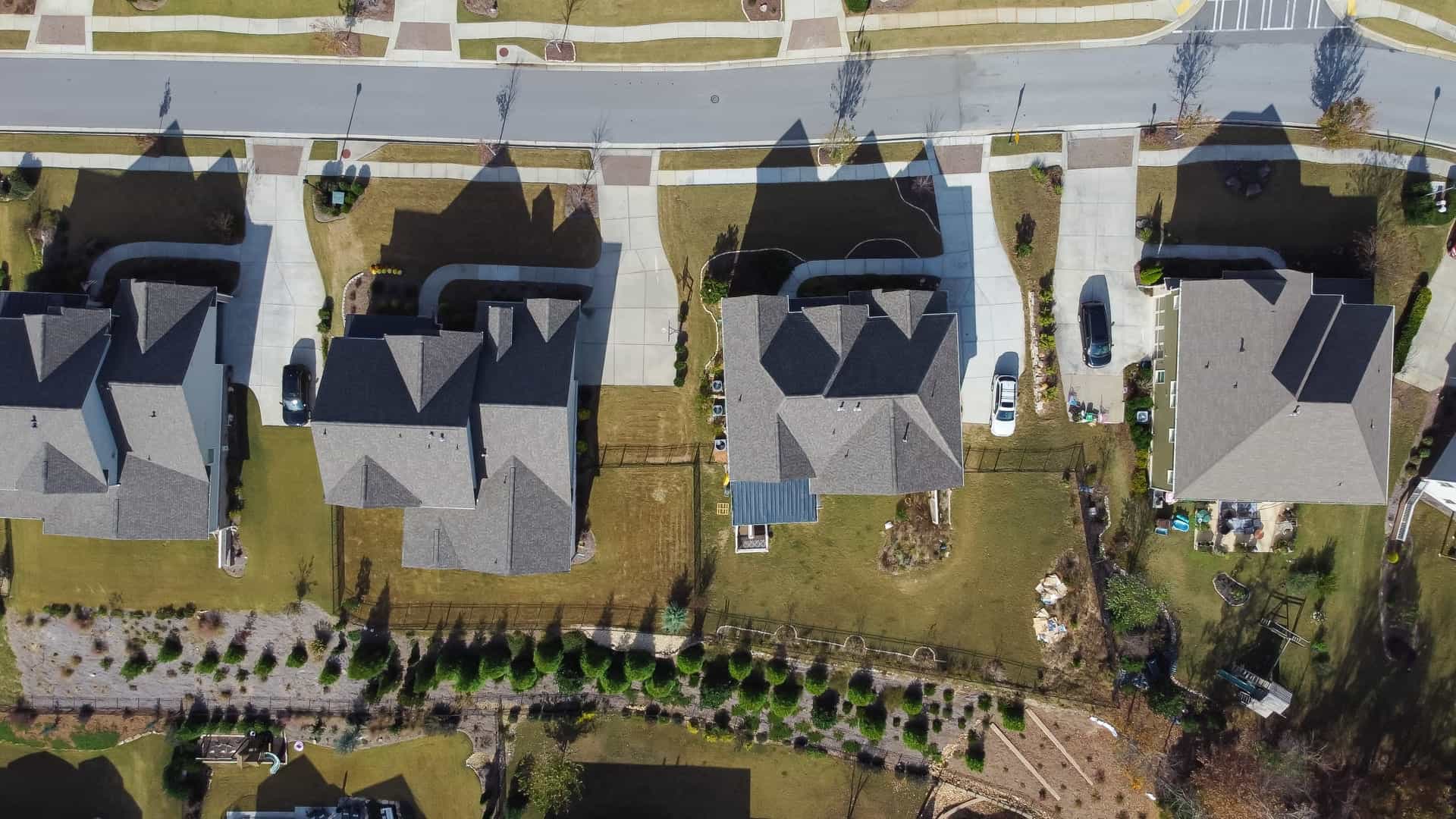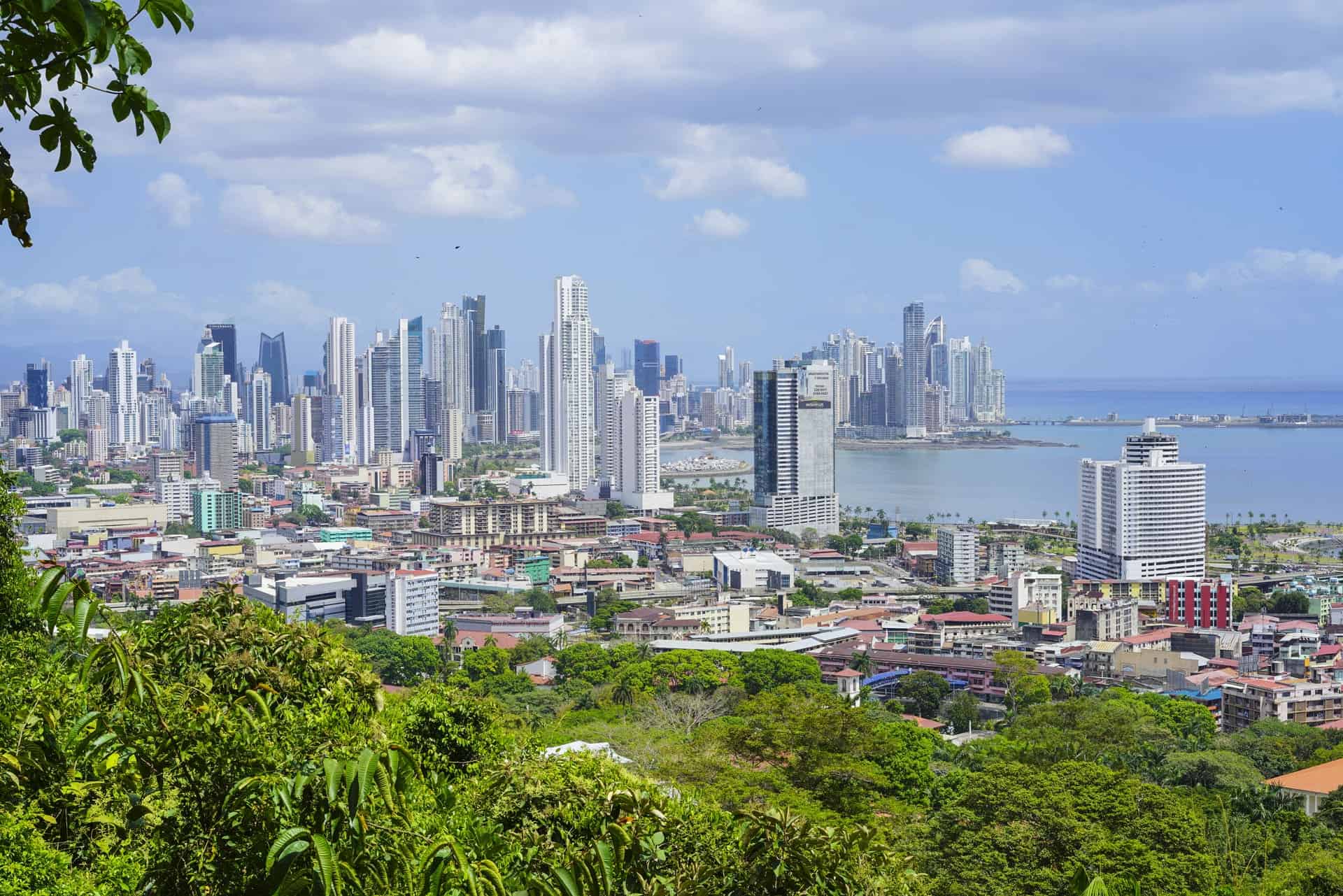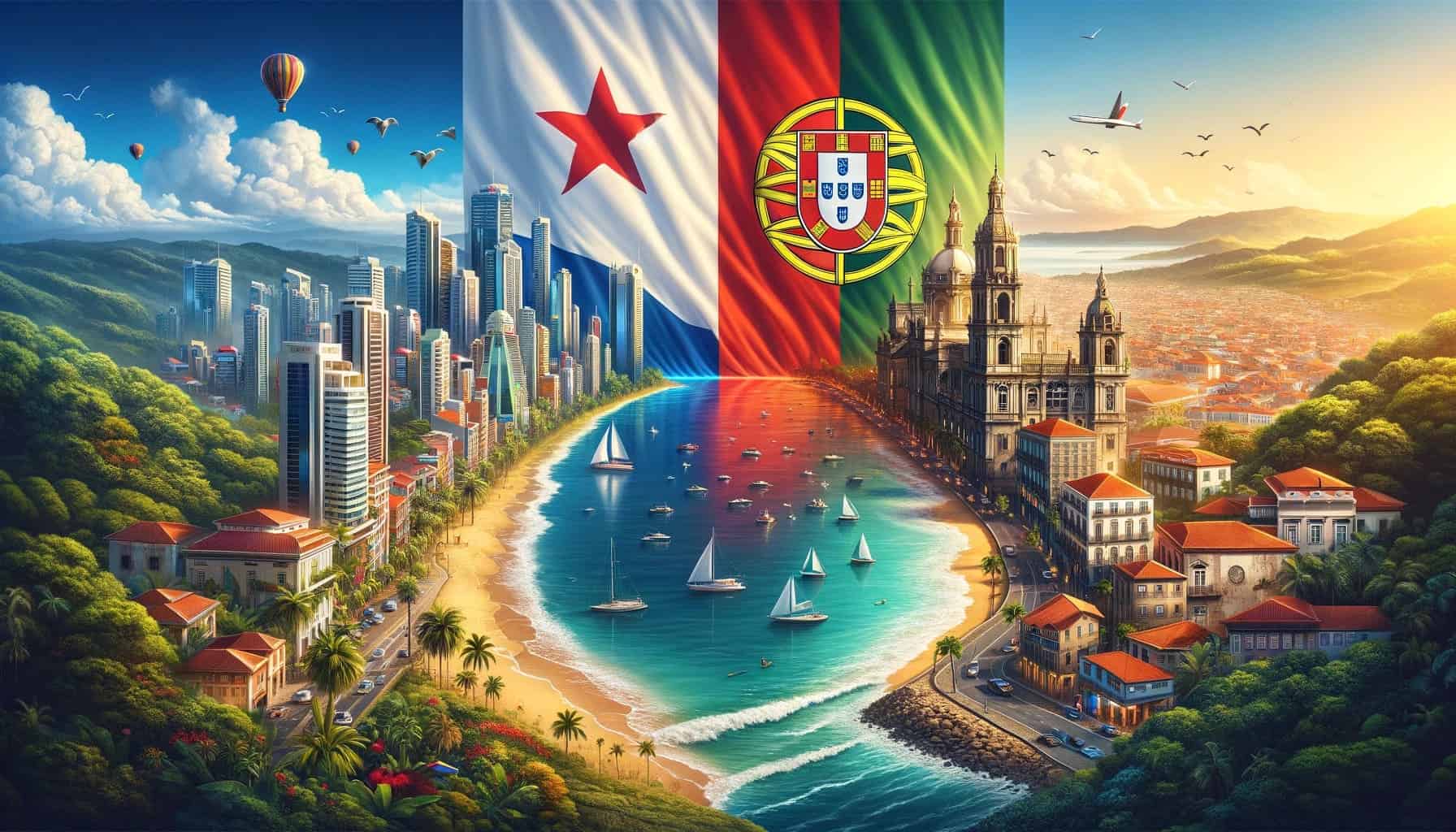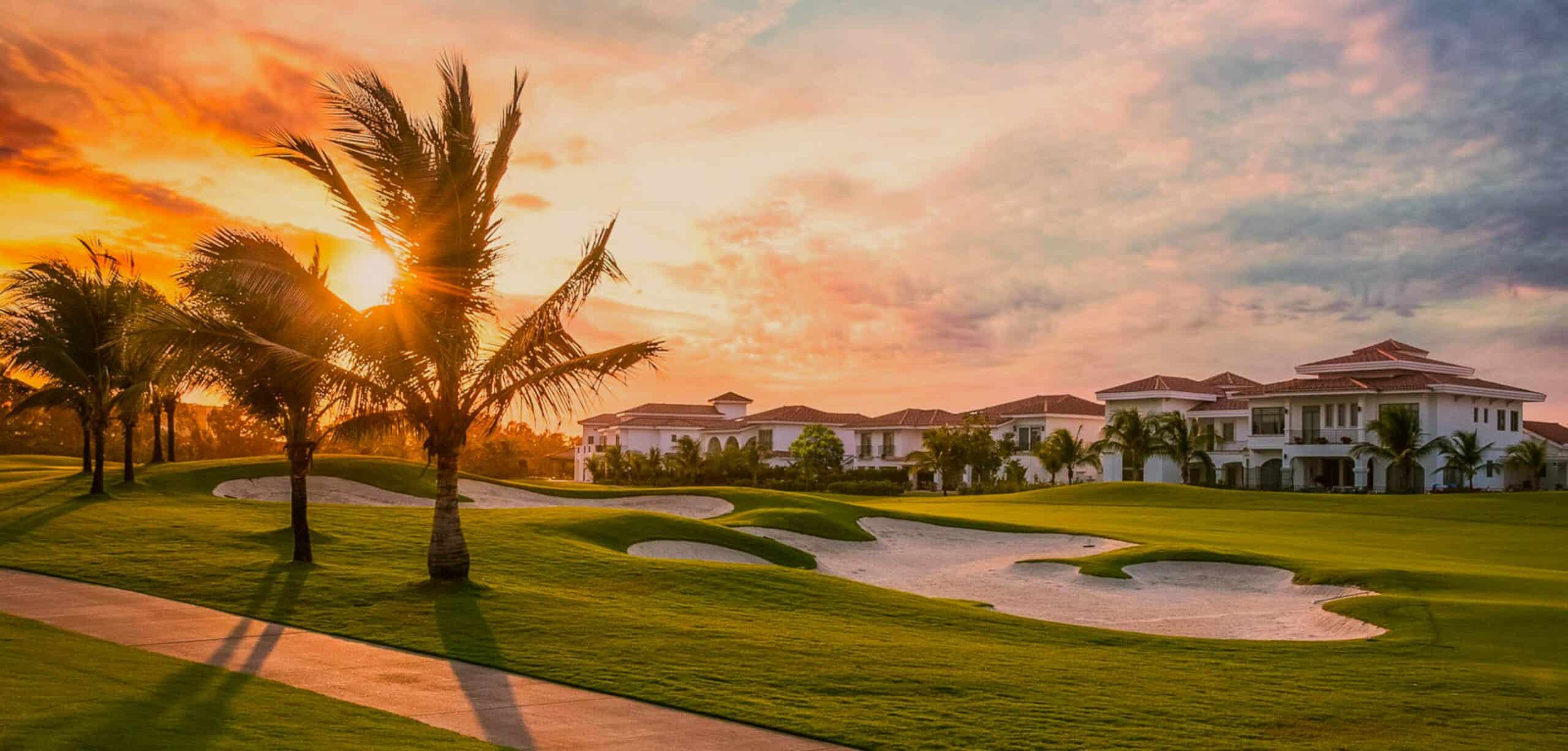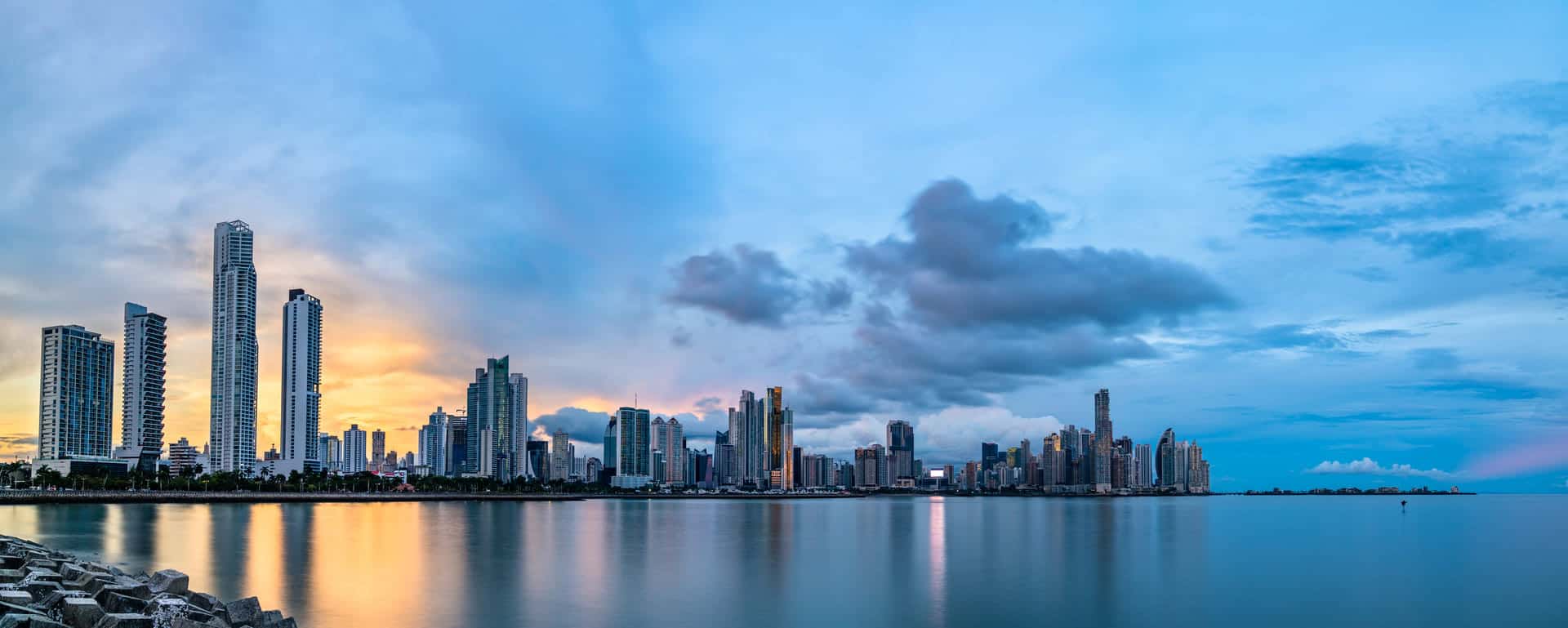Are you ready to embark on a journey to one of the most enchanting retirement destinations in the world? Panama, with its alluring landscapes, rich culture, and incredible opportunities, beckons you to explore a retirement like no other. In our latest blog article, we will be your compass on this thrilling expedition. This comprehensive guide will not only introduce you to the wonders of Panama but also equip you with the essential information to consider when contemplating retirement abroad. From the remarkable real estate options that cater to retirees’ dreams, whether it’s beachfront luxury or serene mountain retreats, to the economic benefits that make Panama an attractive choice, including tax incentives and affordable healthcare – we’ve got it all covered. But our journey doesn’t stop at numbers and properties. We’ll delve into the heart of Panama’s everyday life for retirees, sharing insights into the cost of living, cultural experiences, the Pensionado Visa for retirees, and the seamless integration into the local community. Whether you’re on the brink of retirement or simply curious about the possibilities that Panama holds, this article is your key to unlocking the secrets of retirement in Panama. Join us on this captivating adventure, and let’s uncover why Panama is the ultimate choice for your retirement dreams.
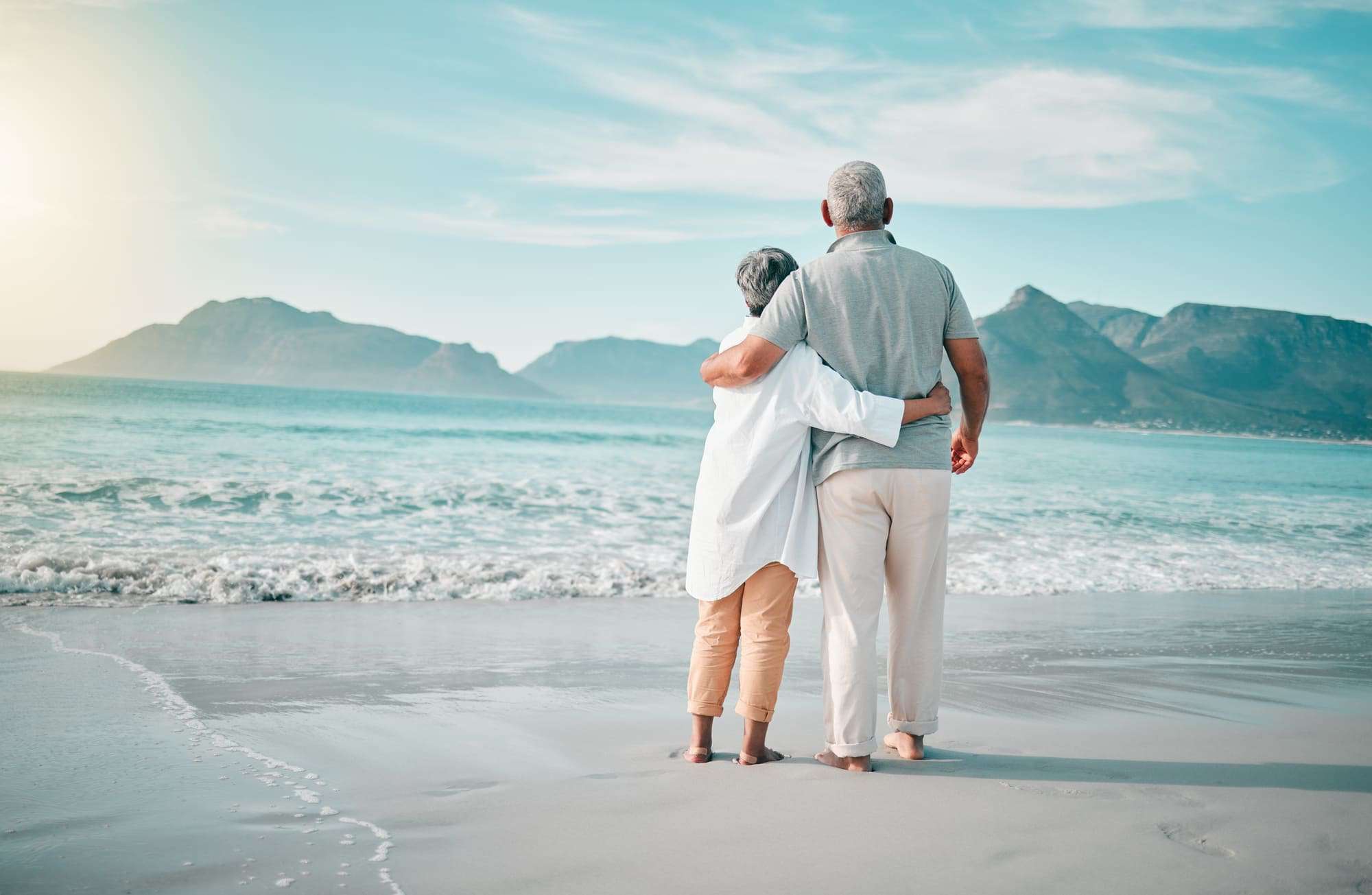
Why Panama?
Panama stands out as an enticing option for expatriates, investors and retirees alike. This tropical gem has built its reputation as a world-class destination on a solid foundation that includes reliable infrastructure and modern amenities. Panama’s tropical allure is irresistible. The country boasts diverse landscapes, from pristine Pacific and Caribbean beaches to lush rainforests, creating a paradise for outdoor enthusiasts. Its tropical climate ensures retirees can bid farewell to harsh winters and revel in a perpetual summer. Whether you prefer a stroll along coastal promenades or crave outdoor adventures, Panama’s climate supports overall well-being. Plus, the cost of living here is surprisingly reasonable, making your retirement budget stretch further.
Retiring in Panama means immersing yourself in a vibrant melting pot of cultures. This land is home to a diverse population that includes Creoles, Mestizos, European immigrants, Africans, and Indigenous Peoples. You can engage in local festivities, savor traditional cuisine, and embrace a lifestyle enriched by the warmth of Panamanian hospitality. With expat-organized activities, English-language movies, and more, there’s never a dull moment. Panama’s geographic position is highly desirable for international travelers. The country enjoys constant growth in air and sea connectivity, making it easily accessible from North America, South America, Europe, and Asia. Retirees can maintain close connections with family and friends while indulging in the thrill of international travel. Panama is not just a relocation; it’s an opportunity to embrace a lifestyle defined by several factors that make it a retirement haven.
Economic Benefits of Retiring in Panama
Cost of living in Panama Panama
- Housing Cost
Panama’s housing market presents a diverse range of options to cater to the preferences of different buyers, with prices varying based on property type and location. Two prominent areas in Panama City, Punta Pacifica and Punta Paitilla, offer prime real estate opportunities. Currently, property prices in these areas range from $2000 to $3500 per square meter, influenced by several key factors including the age of the building, the view it offers, and the amenities available within each project. On average, monthly rents for one-bedroom apartments in these sought-after locations start at $600 and can reach as high as $2000.
- Food Cost
In Panama, a meal at an inexpensive restaurant will set you back approximately $12. If you choose to explore the local markets, you’ll be pleased to find that 1 kilogram of rice is priced at a wallet-friendly $1.94. Furthermore, Panama’s markets are a treasure trove for those seeking fresh and reasonably priced fruits and vegetables.
- Transportation
Panama has cost-effective transportation options, ensuring seamless and budget-friendly experience. Metrobus system offers an excellent solution simply purchase a $2 Metrobus card. Regular routes cost $0.25 and $1.25 for Corredor routes (Corredor Norte and Corredor Sur). Taxis typically cost around $2, and from there, you’ll be charged an extra 30 cents for each kilometer traveled if your ride falls within the 3 to 9-kilometer range. If your travel plans include airport transfers, budget approximately $30. If you’re a tourist and want to hire a taxi by the hour, it’s usually about $18 per hour. The Panama Canal Interoceanic Railway offers one-way tickets for $25, with discounts available for seniors and children. Additionally, Panama’s transportation system includes the convenience of widely available and budget-friendly Uber services, often at rates lower than traditional taxis.
- Utilities
In Panama, utility expenses including electricity, water, and gas, typically range from $50 to $70 per month. The costs are generally reasonable, but heavy air conditioning usage may lead to higher bills. For the internet expect to pay approximately $50 per month, depending on the speed of internet service you require and the provider you choose.
Panama’s Pensionado Program: Benefits and Eligibility
The Pensionado Visa program, designed for retirees, offers a multitude of benefits, including discounts on healthcare, entertainment, dining, and even airfare. This program not only enhances the financial appeal of retiring in Panama but also fosters a supportive environment for those seeking to make the most of their retirement savings.
Considered to be among the best retirement programs in the world, the Panama Pensionado program offers excellent incentives such as:
- Pensioners are entitled to a one-time tax exemption on purchasing household items up to a value of $10,000.
- Duty exemption for importing a new car every two years
- 50% off entertainment anywhere in the country (movies, concerts, sports), hotel stays from Monday through Thursday, and reduction in closing costs for home loans
- 30% off bus, boat, train fares, and hotel stay from Friday through Sunday
- 25% off airline tickets, restaurants, and discounts on utility bills
- 20% off for professional and technical services
- 15% off at fast-food restaurants, hospital bills (if no insurance applies), dental and eye exams
- 10% off prescription medicines
The program has no age restrictions and it is not exclusive for retirees. The main requirement is a lifetime pension of at least $1,000/month, which can be reduced to $750/month if you own property in Panama valued at more than $100,000.
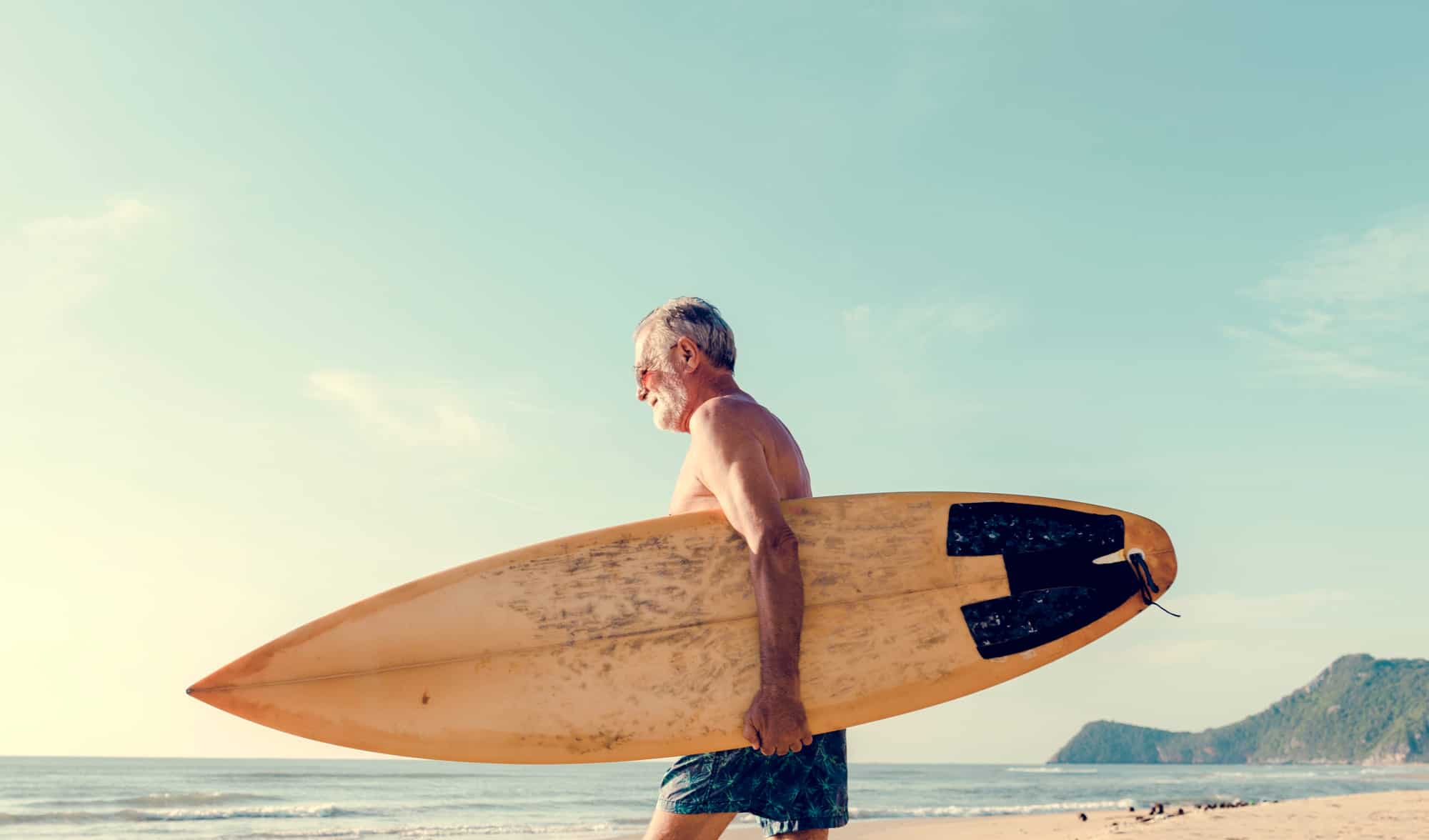
Real Estate for Retirees in Panama
Overview of the Real Estate Market in Panama
Panama’s real estate market, a vibrant and dynamic sector, has evolved significantly since its pivotal growth period beginning in 2006. This growth is driven by factors such as Panama’s stable economy, retirement incentives offered by the government, and the influx of foreign investors and retirees. Panama’s real estate market has been a magnet for retirees due to its diverse range of living options, attractive prices, and beautiful landscapes. Retirees have a plethora of lifestyle options to choose from in Panama, whether it’s the cosmopolitan allure of Panama City, the refreshing mountain breezes and scenic vistas of Highland towns like Boquete, or the tranquil beachfront living in coastal regions such as Coronado.
Recent years have seen steady growth in Panama’s real estate sector. The market is known for its resilience, maintaining stability even in global economic downturns. With its advantageous Pensionado program, which offers significant benefits to retirees, Panama continues to be an attractive destination for those looking to enjoy their golden years in a beautiful, affordable setting. The country’s welcoming culture and diverse landscape add to its appeal as a top retirement destination.
Popular Areas for Retirees
- Panama City
Panama is a popular destination for retirees and there are several expat communities, with many retirees from the United States and Europe. There are plenty of cultural attractions to explore, such as the Panama Canal, the Panama Viejo ruins, and many museums and galleries. The City offers various types of properties catering to different preferences and needs. These include apartments, condos, houses, and townhouses offering modern city living with amenities and providing more space and privacy, there are also commercial properties suitable for businesses and possibly land for those interested in building their property. The city is also home to top-notch hospitals like Pacífica Salud Hospital Punta Pacifica and has a well-connected public transportation system.
- Coronado
Coronado is a beautiful coastal town and an ideal retirement destination for anyone who loves gorgeous beaches, perfect weather, golfing, ocean life, and more. Retirees seem to love Coronado for a few key reasons. It offers everything from luxury condos to cozy resale homes to lots of every shape and size, it has a white sand coastline, great food, and shopping centers, and easy access to the national highways, Panama City, and international airports. It is also home to Clinica Hospital San Fernando, one of the most recommended private clinics in Panama. Many of the properties available here are just a five-minute walk to the beach.
- Boquete
Boquete is so popular with American and European expats. This mountain town is renowned for its lush green landscapes and milder climate and is a retirement haven for expats looking for a simpler lifestyle. You can entertain yourself with activities ranging from walking and bird-watching to mountain biking and fishing. Residents of Boquete are more likely to explore nature and attend community gatherings. The real estate market in Boquete is now a buyers’ market meaning you can get some sweet deals. While upscale homes are plentiful in Boquete, you can still find moderately priced homes and condos depending on location.
- Bocas del Toro
Bocas Del Toro is a province on the Caribbean coast next to Costa Rica and is home to a famous archipelago of islands. The island is remote and best suited to those looking to lead a quiet and serene life giving a chance to experience real island life, with stunning beaches and scenery. Expats living here tend to be drawn to water activities like snorkeling and paddle boarding and are very involved in island life. Bocas del Toro offers diverse real estate options to retirees from a titled hilltop home with a view of the water and jungle villa to a waterfront mansion.

Process of Buying Real Estate in Panama for Foreigners
Buying property in Panama involves a series of detailed steps. The process generally takes around 6-8 weeks. Here’s a step-by-step guide to what you can expect.
- Property Selection with a Real Estate Agent: Begin by choosing a property with the assistance of a knowledgeable real estate agent who can provide detailed insights into each listing. The agent will also be instrumental in negotiating terms and preparing you for the purchase process.
- Title Search and Purchase Contract: Engage a qualified Panamanian attorney who will perform a title search on the property to ensure there are no legal impediments. Following this, they will draft a purchase contract. Both you (the buyer) and the seller sign the purchase contract. At this stage, you will also agree on a closing date.
- Transfer of Down Payment: You will need to transfer the down payment, typically 10% of the total list price (though this percentage can vary), along with any associated legal fees, into an escrow account. Another contract, known as the promissory contract, is reviewed and signed by both parties. Once this is done, the down payment is released to the seller from the funds held in escrow.
- Final Title Search and Payment Transfer: A final title search is conducted. Subsequently, you will transfer the remaining funds needed to purchase the property into the escrow account. The final contract is signed at closing by both you and the seller.
- Registration of the Contract: Your attorney will register the signed contract with the public registry. This is the step where the title transfer is initiated, and it typically takes around two weeks. Once the public registry accepts the title transfer, a final deed is sent to your attorney. They then prepare the final documents to be sent to you, the buyer.
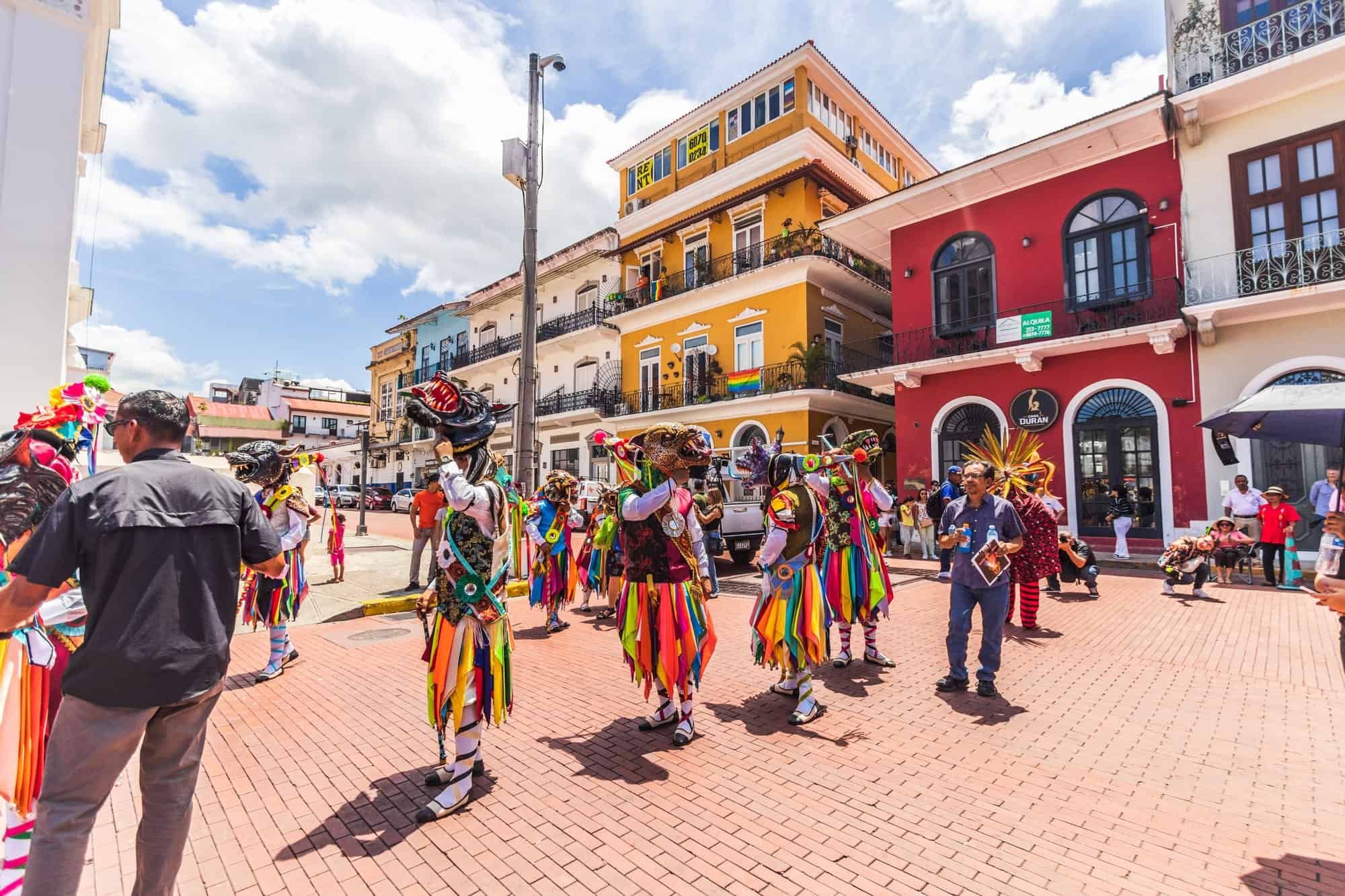
Living in Panama: Everyday Life
Panama boasts a consistently tropical climate, with temperatures hovering comfortably between 84°F and 90°F (29°C to 32°C). The nation experiences distinct dry and wet seasons, with the Caribbean coast receiving ample rainfall. This makes Panama an enticing destination for those seeking year-round warmth and the desire to escape cold winters. But the appeal of Panama extends beyond its climate. It’s also a culinary paradise, offering an array of renowned dishes like tacos, ceviche, and the famed Sancocho. Panama’s healthcare system is another standout feature, striking a balance between affordability and top-notch quality. Private healthcare, in particular, is more appreciated by expats. Many private hospitals in Panama maintain affiliations with prestigious U.S. medical institutions, and the medical professionals, often fluent in English, boast qualifications and training from the U.S. and Europe.
In addition to its attractive climate and healthcare, Panama’s people are known for their warmth and hospitality, making it easy for newcomers to forge friendships. The country’s culture places a strong emphasis on community, fostering close-knit neighborhoods where neighbors genuinely know each other. Panama’s cultural diversity is equally noteworthy, with various indigenous groups representing distinct ethnicities, languages, and traditions, lending the nation a multinational character. Furthermore, Panama’s reputation as one of the safest countries in Central America has made it a preferred destination for thousands of expatriates and international businesses alike.
Legal Considerations
How To Apply for a Panama Retirement Visa in Panama?
If you meet the eligibility criteria, you can apply for a Panama retirement visa at the Immigration Office in Panama City. A step-by-step overview of the application process is as follows:
- Travel to Panama: You can enter with a tourist visa or visa-free and change your immigration status later on.
- Compile the document checklist: You must enclose all required documents, but the Immigration Office will inform you if any additional documents are needed.
- Fill in the retirement visa registration form: You can get a registration form for the retirement visa at the Immigration Office. Then, attach it to the rest of your documents.
- Submission of documents: Submit the documents to the Immigration Office in Panama City. After your visa is issued, you have to go pick it up in person.
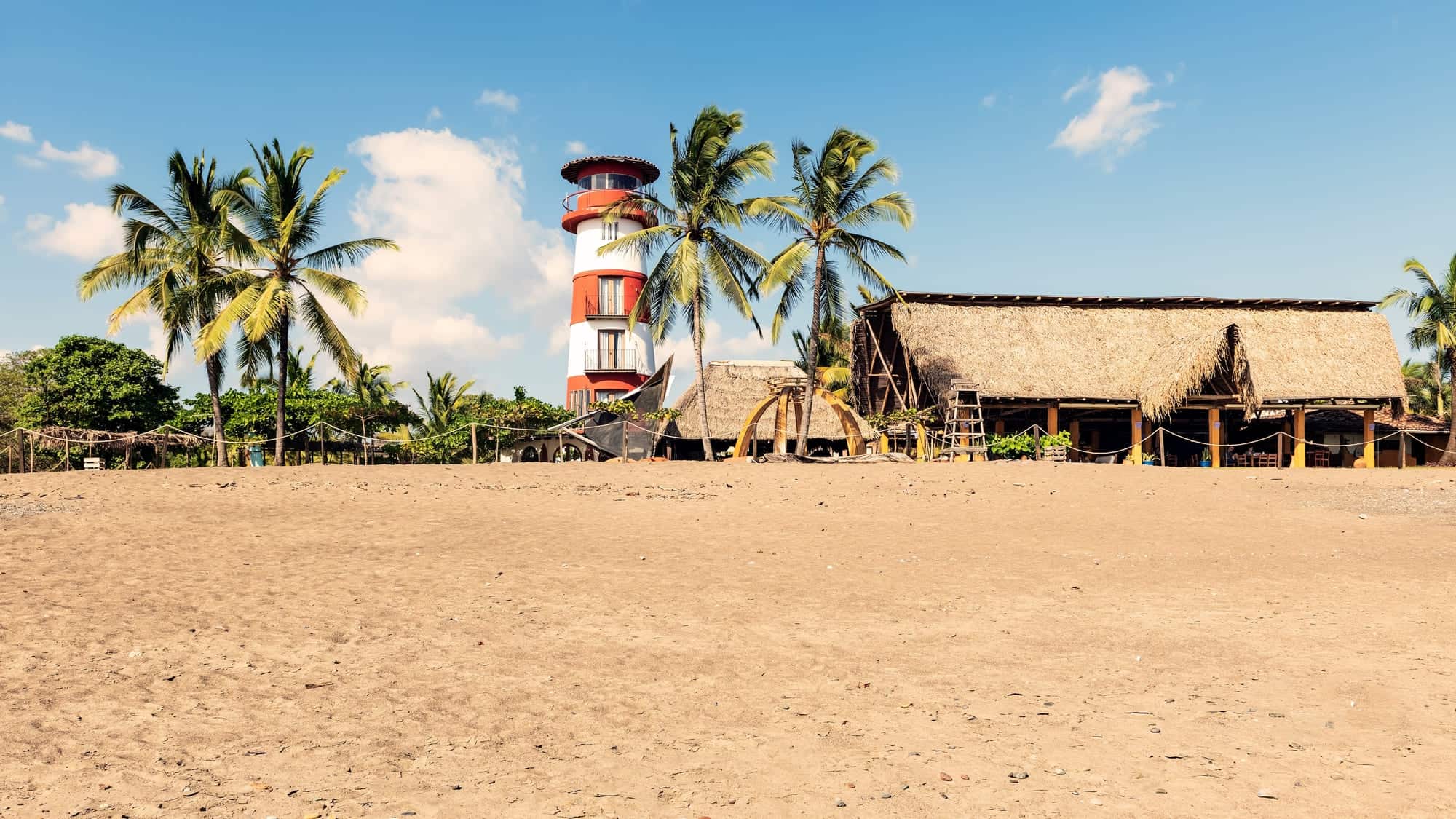
Applying for a Panama Retirement Visa from Abroad
If you are applying for a Panama retirement visa from abroad, you must submit your application through an immigration lawyer in Panama – you cannot apply to the Panamanian consular offices. The immigration office of Panama requires applications for a retirement visa to be submitted and verified through an immigration lawyer if you can’t submit it personally. This means you have to send your lawyer all the documents so they can apply on your behalf. However, if your application is approved, it is generally a requirement that you have to pick up your visa in person.
To complete your Panama retirement visa application, make sure you have all the following documents:
- A registration form – pick up the registration form at the Immigration Office in Panama
- Original valid passport – include copies of your passport pages (including cover), notarized and authenticated by the Panamanian Consulate.
- Four photographs of 2-inch by 2-inch and taken on a light background.
- Health certificate issued by a Panamanian Doctor – Provide an official document that states your health status. The professional health specialist (doctor) must sign the certificate.
- Police records – You need police records issued by the authorities of your country of residence for the last five years authenticated by the Panamanian Consulate or by Apostille.
- Proof of your pension or income – You must submit a letter issued by a private company or public entity that states your condition as a pensioner and the monthly amount you receive. The letter must be original and notarized.
- Proof of the received amount authenticated by an apostille stamp or the Panamanian Consulate.
- Sworn statement regarding your background. This is done in Panama through a lawyer.
- A bachelorhood certificate authenticated by the Panamanian consulate (applicable only if you are single).
Property Laws and Regulations for Foreign Buyers
Acquiring property as a foreigner in Panama presents a straightforward and lawful opportunity, irrespective of one’s residency status, nationality, or place of birth. However, certain nuances warrant careful consideration. Under Panamanian legislation, foreigners seeking to purchase properties in restricted zones, such as borderlands or islands, must obtain an Investment Permit issued by the Ministry of Commerce and Industries (MICI). This permit serves to safeguard national security and the country’s economic stability against any adverse foreign investment.
The primary limitation imposed on foreign real estate ownership pertains to properties situated within 10 kilometers of Panama’s borders or coastlines. To cement property rights and ensure their legal validity, it is imperative for foreign buyers to duly register their acquired real estate with the General Public Registry. This step not only guarantees compliance with regulatory requirements but also secures the interests of the foreign investor.
Furthermore, foreign investors are obligated to adhere to the tax obligations prescribed by Panamanian laws. These responsibilities encompass real estate transfer taxes and a property transfer tax equivalent to 3% of the sale price or the highest value. It is advisable for individuals contemplating property acquisition or establishing residency, whether on a permanent or temporary basis, to engage the services of a qualified attorney and/or a reputable real estate broker. Their expertise will prove invaluable in navigating the legal and financial intricacies associated with property ownership in Panama.
Conclusion
Panama, a land of promise and possibility, offers retirees a captivating blend of natural beauty, economic advantages, and a vibrant lifestyle. In this article, we’ve unraveled the secrets of retirement in Panama, from its enticing real estate opportunities to its financial benefits and the rich tapestry of everyday life.
As you embark on your retirement journey, remember that Panama is more than just a destination; it’s a doorway to a fulfilling and enriching chapter of life. So, whether you’re on the brink of retirement or simply curious about the Panama dream, seize the opportunity and let Panama redefine your retirement adventure. Don’t hesitate; let Panama be your next chapter, where your dreams come to life. Your retirement paradise awaits in Panama.

